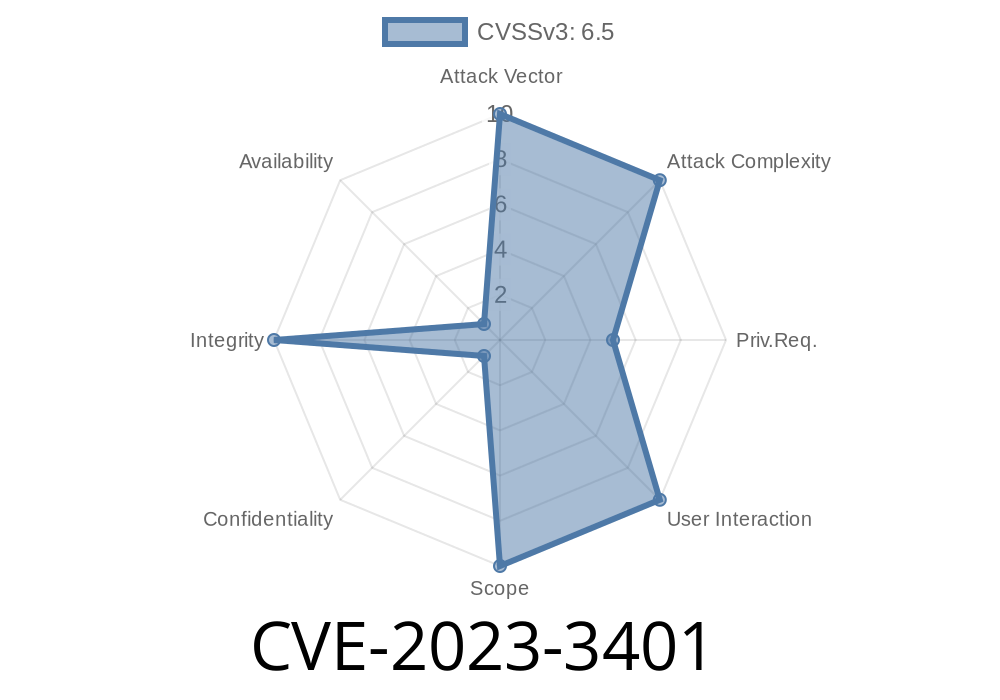In June 2023, a critical vulnerability was discovered in GitLab, one of the world’s most popular DevOps platforms for managing code and CI/CD pipelines. Identified as CVE-2023-3401, this flaw affects:
All versions starting from 16.2 before 16.2.2
The vulnerability centers on how GitLab handles repository names, specifically when the default branch (usually main or master) is involved. Let’s dive deep into what happened, how exploitation works, and what you need to know to protect yourself.
What Is CVE-2023-3401?
GitLab repositories are organized by names—both the repository and the branches inside. When a repository is created, GitLab automatically sets up a default branch, often called main.
The problem:
If a repository was created with a specially crafted name that mimicked or conflicted with this default branch, attackers could trick GitLab into misbehaving. This allowed attackers to slip malicious code into a repository under circumstances where developers, CI pipelines, or users thought they were dealing with safe code.
In Simple Terms...
Attackers could make a repository with a malicious name that looks like a valid main branch. When people or automated tools pulled code from this repository, they could end up running code an attacker snuck in.
Step 1: Create A Sneaky Repo
An attacker creates a repository with a name like main.git or even just main, depending on how GitLab processes names and slashes. By exploiting name resolution quirks, this could interfere with how GitLab determines what "main" refers to.
Step 2: Inject Malicious Code
The attacker populates the default branch (which GitLab calls "main") with malicious files—malware, backdoors, or scripts designed to steal secrets.
Step 3: Trick Devs or Automation
If a developer or CI/CD pipeline is told to clone or run code from what it thinks is a standard "main" branch, it may get the attacker's damaging branch instead.
Vulnerable Clone Command
git clone https://gitlab.example.com/attacker/main.git
cd main
git checkout main
# You think you're on the legit 'main' branch, but you could be running attacker code!
This vulnerability is a big deal for a few reasons
- Automated CI/CD systems often pull the latest code from the "main" branch without manual inspection.
- Developers may trust code if it has familiar, expected names (like "main"), even if they come from suspect repos.
- If malicious code runs in a pipeline, it could access deployment secrets, cloud API keys, or even ship malware in final software releases.
Responsible Disclosure and Patch
GitLab acted quickly once researchers reported the issue. Updates closing the hole were released in late June 2023.
* Patched versions:
Official GitLab Advisory:
GitLab Security Release: CVE-2023-3401
CVE Database Entry:
Research write-up:
Exploring GitLab Main Branch Name Conflict Vulnerability (External)
Restrict repo creation rights for untrusted users.
4. Review CI/CD pipelines and add steps to verify repository sources and names before running code.
Conclusion
CVE-2023-3401 is a reminder that names matter—not just code. If you use GitLab, update now and review your repository names and branches. Attackers are always on the hunt for the smallest oversight, and here, something as simple as a branch or repo name could have been their foot in the door.
Stay safe, stay patched, and always double-check what you’re pulling from your repositories!
*This post is exclusive to you, using simple language to make understanding easy. If you want more technical detail or a script to scan your GitLab for affected names, let me know!*
Timeline
Published on: 08/02/2023 09:15:00 UTC
Last modified on: 08/04/2023 20:03:00 UTC
